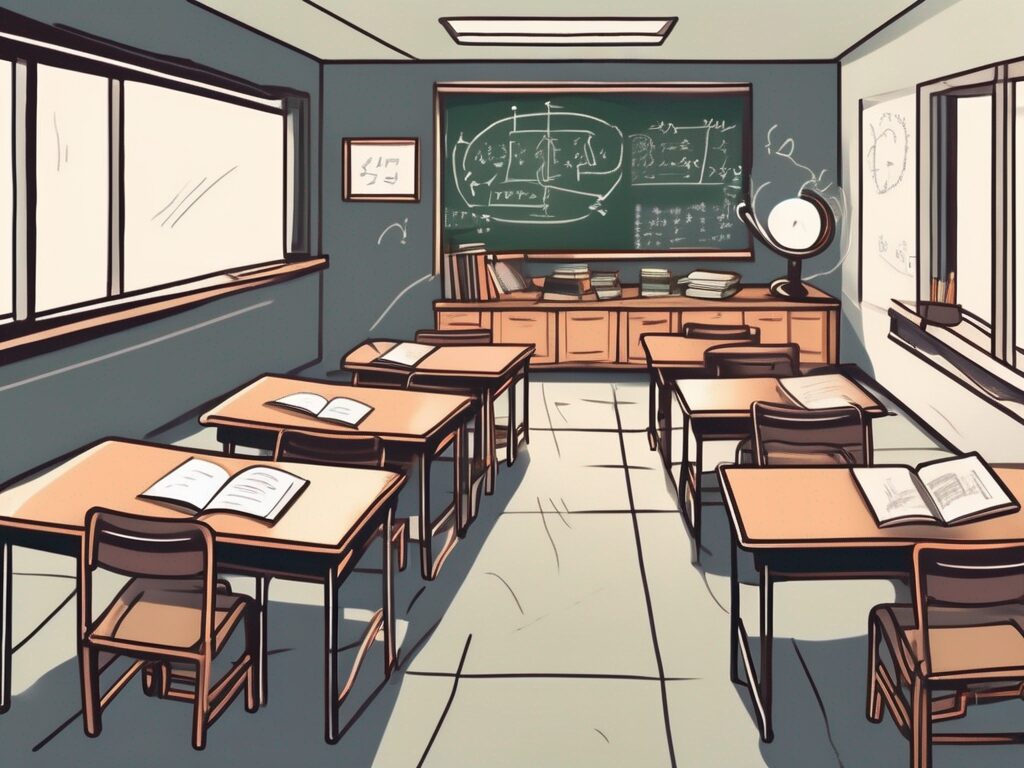South Korea’s education system is often hailed as one of the best in the world. With a literacy rate of nearly 100% and a strong emphasis on academic achievement, South Korea has set a high standard for educational success. However, beneath this shining exterior, there are a number of challenges that the system faces, which are often overlooked in global discussions. From high-stress environments to a lack of creativity and diversity, let’s delve into the current issues that are causing concern.
The Pressure Cooker Environment
The South Korean education system is often likened to a pressure cooker – intense, relentless, and highly stressful. Students are expected to study for long hours, often extending late into the night. This is largely due to the competitive nature of the system, where high grades are seen as the ticket to a successful future.
However, this high-pressure environment can lead to a host of problems. Many students report feeling stressed and anxious, with some even experiencing burnout. The mental health of students is a growing concern, with the suicide rate among young people in South Korea being one of the highest among OECD countries. It’s clear that the pressure to succeed academically is taking a toll on the wellbeing of students.
The Role of Hagwons
Hagwons, or private after-school academies, play a significant role in the South Korean education system. They offer additional classes in a variety of subjects, with a particular focus on exam preparation. While these institutions can provide valuable support for students, they also contribute to the high-pressure environment.
Many students spend hours at hagwons after their regular school day, leaving little time for relaxation or extracurricular activities. This intense focus on academics can lead to a lack of balance in students’ lives, with potential negative effects on their physical and mental health.
Lack of Creativity and Diversity
Another challenge facing the South Korean education system is the lack of emphasis on creativity and diversity. The system is largely exam-focused, with a heavy reliance on rote learning. This approach can stifle creativity and discourage independent thinking, as students are often rewarded for memorising information rather than understanding or questioning it.
Furthermore, there is a lack of diversity in the curriculum. While subjects like maths and science are heavily emphasised, other areas such as the arts and humanities are often sidelined. This can limit students’ exposure to a broad range of disciplines and potentially restrict their future career options.
The Need for Reform
There is a growing recognition of the need for reform in the South Korean education system. Many believe that a shift away from rote learning towards a more holistic approach to education is necessary. This could involve a greater emphasis on creativity, critical thinking, and problem-solving skills.
Additionally, there is a call for more diversity in the curriculum. By offering a wider range of subjects, students could be exposed to a broader array of disciplines, potentially sparking new interests and opening up different career paths.
The Socioeconomic Divide
A further challenge is the socioeconomic divide in education. Wealthier families can afford to send their children to hagwons or hire private tutors, giving them an advantage in the competitive education system. This can create a gap in educational attainment between students from different socioeconomic backgrounds.
Furthermore, the high cost of education can place a significant financial burden on families. Many parents feel compelled to invest large amounts of money into their child’s education, often at the expense of other areas such as leisure or savings. This financial strain can exacerbate the stress experienced by both students and parents.
Addressing the Divide
Addressing the socioeconomic divide in education is a complex task. It requires a multifaceted approach that includes policy changes, increased funding for public education, and efforts to reduce the reliance on private tutoring. By taking steps to level the playing field, the hope is that all students, regardless of their socioeconomic status, can have an equal opportunity to succeed.
Despite these challenges, it’s important to remember that the South Korean education system has many strengths. Its high academic standards, dedicated teachers, and motivated students are all assets that should not be overlooked. However, by addressing these issues, South Korea has the potential to create an even stronger, more inclusive education system that nurtures the wellbeing and creativity of all students.
Empower Your Teaching Career with IPGCE
As South Korea continues to navigate the complexities of its education system, educators are seeking ways to enhance their qualifications and adapt to the evolving demands of teaching. IPGCE offers a beacon of hope, providing a comprehensive International Postgraduate Certificate in Education that not only meets the stringent requirements of international schools but also fosters career progression and professional development. By joining the UK’s #1 Teacher Training Course, you will be part of a global network of educators, gain a deep understanding of international curricula, and enjoy the flexibility of balancing your career with further education. Don’t let inadequate credentials or isolation limit your potential. Join the UK’s #1 Teacher Training Course today and take a significant step towards overcoming the challenges within the education sector.

